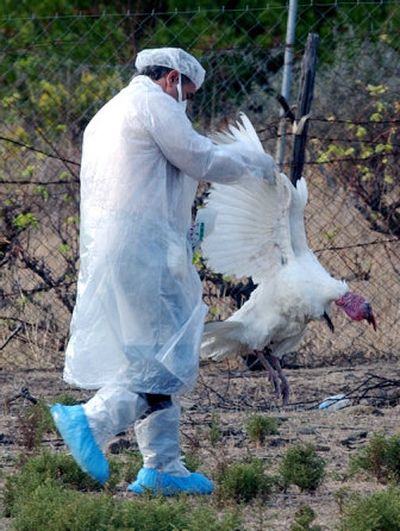More signs bird flu has spread

MOSCOW – Russian authorities detected a deadly strain of bird flu south of Moscow on Wednesday and China reported a fresh outbreak in its northern grasslands – signs the deadly virus was spreading across Siberia to the Mediterranean along the pathways of migratory birds.
The U.N. Food and Agriculture Organization warned of a marked increase in chances that bird flu would move to the Middle East and Africa – and hit countries poorly equipped to deal with an outbreak. The European Union announced plans for an exercise simulating a human flu pandemic to improve readiness in case the bird virus mutates to form a strain transmissible among people.
In Asia, crucible of the virus, China’s official Xinhua news agency said 2,600 birds in the northern grasslands had died of the disease
The H5N1 strain was detected in Siberia in July. Migratory birds flying over the region from elsewhere in Asia were blamed for the outbreak, and the virus had been registered in six districts in Siberia and the Urals region.
Preliminary genetic tests now have found an H5N1 flu virus in samples of birds taken from a village south of Moscow, the Russian Agriculture Ministry said. Further tests are needed to confirm the finding and determine whether the H5N1 strain is the same one that has devastated flocks in Asia since 2003.
If so, it would mark the first appearance of the virus in European Russia, west of the Ural Mountains.
The EU, meanwhile, was trying to assess whether the H5N1 strain of bird flu had spread into Macedonia and Greece. H5N1 already has been confirmed in two villages in Romania and in Turkey.